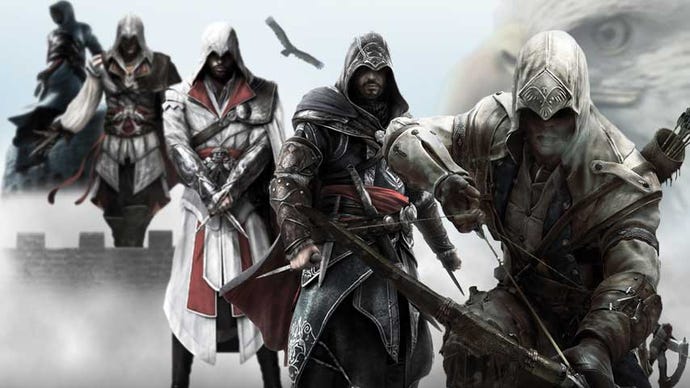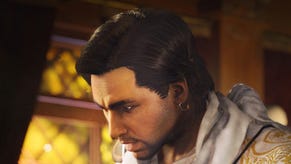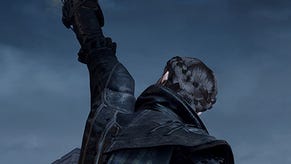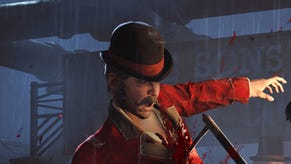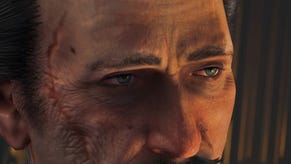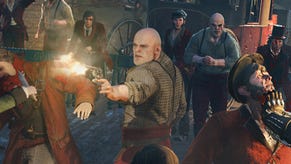What's next for Assassin's Creed?
Assassin's Creed may be going biennial, may be going to Ancient Egypt, and may be embracing new ideas and mechanics. Is this the shake-up the series needs?
When Assassin's Creed dropped in 2007, we'd never seen anything quite like it. But that was more than eight years ago, and sandbox open-world murder is everywhere, including embedded in several of Ubisoft's other key properties.
Assassin's Creed is no longer a refreshing and exciting experience. Assassin's Creed is in a rut. Slap as many bells and whistles on each new release as you like, the core formula is played out.
As one of the annual titans the series is still selling pretty well; Syndicate topped the weekly UK charts and did well enough in the US.
But the signs are there: Syndicate had the second-worst launch week of the series to date, with only the last gen-only Rogue performing less admirably, and although we expect to hear it did well over the holiday period in the US, ninth place in launch month is a long way from standing alongside other juggernaut franchises Assassin's Creed counted as its peers when it was at its peak. Take a look at how interest in the series, as gauged by Google search queries, changes over time:
That first peak is the original game's release in 2007. The second is Assassin's Creed 2 in 2009. You can see how interest spiked with the second release.
The series went annual the following year, with 2010's Brotherhood. Recycling plenty of assets and gameplay, Brotherhood nevertheless broke new ground, introducing an interesting new take on competitive multiplayer. There was plenty of suspicion regarding this sequel at the time, but it went on to be lauded as one of the best series entries to date.
Revelations wasn't as well-received, but it sold pretty well for an "off year" release - which it was, because Ubisoft had thrown multiple teams at its juggernaut property ahead of an engine overhaul with the ambitious Assassin's Creed 3.
Assassin's Creed's problem right now is it doesn't know what it is, and the experience suffers for it.
This third numbered entry outsold its precursors significantly. Where the three games immediately preceding it sold in the realm of 7-8 million within three months of launch, Assassin's Creed 3 managed 12 million sales to become the best and fastest-selling entry to date.
Despite this phenomenal sales performance, for many series fans this was the beginning of the end - if not the end itself. Despite or perhaps because of the tech overhaul, Assassin's Creed 3 was even buggier than its precursors, and word of mouth pegged it as a stinker.
Its reputation has since recovered, and many players will tell you its one of the best in the series if you care to kick off the endless debates on that subject - but Ubisoft wisely moved on from both setting and protagonist to shake off its shadow.
Unfortunately, the damage was done - and neither of the following sequels, Black Flag and Unity, managed to equal Assassin's Creed 3's sales. The jury's still out on Syndicate, but we're not super optimistic despite a sales boost in its second week.
There are several mundane possible explanations for why Assassin's Creed isn't performing as well as it used to. A new generation of hardware launched between Assassin's Creed 3 and Assassin's Creed 4: Black Flag, leading to shrinking install bases for older hardware - which until very recently remained the platforms of choice for the huge majority of consumers who only buy a couple of games each year, and make up the primary audience of the "blockbuster" crowd.
Ubisoft's hit a couple of stumbling blocks, too. Deservedly or not, both Assassin's Creed 3 and Unity contributed to the franchise's reputation for being a buggy mess. Despite its popularity elsewhere, the naval focus of Black Flag disgruntled a significant subset of series fans who felt it didn't feel enough like an Assassin's Creed game.
All of those factors could have contributed and likely did contribute to the 1-2 million sales drops of releases after Assassin's Creed 3. And with over 10 million sales it's hard to argue that there's anything really "wrong" with Assassin's Creed, which remains one of the best-selling releases each year. Nevertheless, with a downward turn in sales, Ubisoft has to act now in order to preserve the franchise's future.
In fact, it had to act yesterday - and it did. Giving a second studio (Ubisoft Quebec) a chance to take the reins gave Ubisoft Montreal enough breathing space to do more than just make more of the same, and if today's rumours are true it'll have even longer than that, and a chance at a really ambitious makeover.
This is a really excellent move, because Assassin's Creed's problem right now is it doesn't know what it is, and the experience suffers for it.
The Assassin's Creed of today is very different from the Assassin's Creed of 2007. That first game, while greatly beloved of hardcore fans, was never going to go mainstream; its unforgiving stealth was just too inaccessible to broader audiences.
Ubisoft toned that aspect down a little, making the series stealth-optional rather than stealth-centric. But the game's other major elements - parkour and simple combo-based combat - probably weren't enough to keep players' interest longterm; Assassin's Creed 2, for all its praise, is very much a vanilla open world action game with some excellent mission design to elevate it above the pack.
So Ubisoft went bonkers in every other area, opening the floodgates to ever-increasing amounts of copy-paste open world content to please the "I paid $60 so it better last X many hours" crowd; adding and subtracting weapons and equipment from the sandbox; experimenting with wave after wave of progression systems building up from Ezio's villa through recruitable minions and Red Dead Redemption-inspired open world crafting with Connor, before apparently settling on Black Flag, Unity and Syndicate's "collect 'em all if you want the best gear" approach.
Through all this the basic gameplay has remained unchanged; for all the exciting new toys and animations, you still spend a lot of time standing around a corner from gormless AI waiting for the one precise moment in their patrols where it's safe to run out and press your one button; you still wait patiently in a group of enemies for the correct time to press one of three buttons; you still clamber over rooftops cursing when your character jumps the wrong way. All the add-ons and extras serve either to distract you from this business - or, damningly, shortcut it, as if its own makers didn't think it was worth foregrounding.
The times when Assassin's Creed really shines are when you're presented with a semi-closed environment with a specific target, and strongly encouraged to take a creative, stealthy approach. Unfortunately these terrific moments are drowned out by all the other stuff you're supposed to slog through, and Ubisoft seems so afraid of alienating even one action fan that its approach to mission design leaves gaping holes for those who want to easy mode their way through. Players who favour the stealthy, technical approach may gain added XP or other goodies, and arguably they have a better time, but when you're looking at a game with potentially dozens of hours of content it's hard not to feel punished by the game's constant provision of back doors.
So what can be done? Does it take Assassin's Creed back to its hardcore roots, alienating a huge swathe of audience? Despite the success of games like Dark Souls, going that route carries serious risks. Does it drop the original quicktime control system entirely in favour of freeform combat? Doing so would rob Assassin's Creed of some of its current mechanical individuality - although its hard not to wonder whether that might help it become a better game.
And that's putting aside the question of how the franchise will move forward narratively. Do we need a return to the multi-game epic story arcs of the Desmond years? Or a focus on smaller, tighter stories, leveraging the strengths of the historical simulator setting over the messy sci-fi canon - something Unity and more recently the Jack the Ripper Syndicate DLC pursued to great effect? (Side note: Ubisoft's admirable efforts to include less-tired types of characters and stories has certainly helped the series feel fresh and interesting recently.)
I am not a designer, and I have absolutely no idea how Ubisoft can possibly solve its dilemmas. What does seem clear is that something must be done before fatigue has a chance to really set in, and there's good reason to believe a solution will be found; Ubisoft employs a huge number of incredibly talented people whose entire job it is to think about these questions.
If the publisher drops the focus groups and management-driven approach, and if Ubisoft Montreal has been granted not two but three years, plus whatever pre-production was going on during the winding down of Unity, it has the opportunity to figure out a new series identity. If that identity turns out to work best when shorn of some of the more clunky aspects of the series in its current state, so be it. Be bold, Ubi; we're ready for it.
